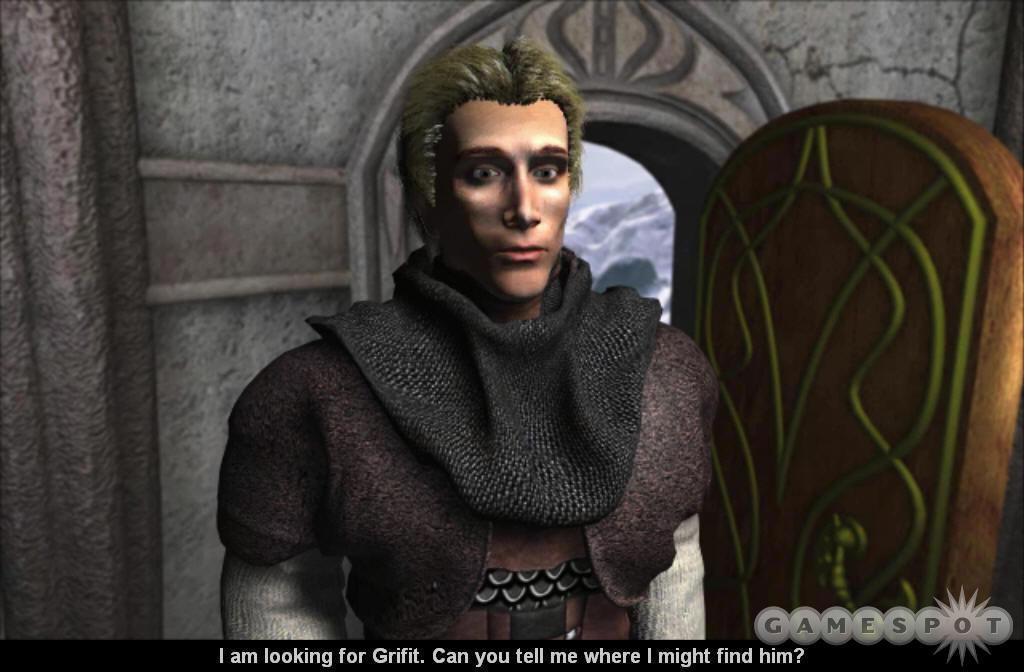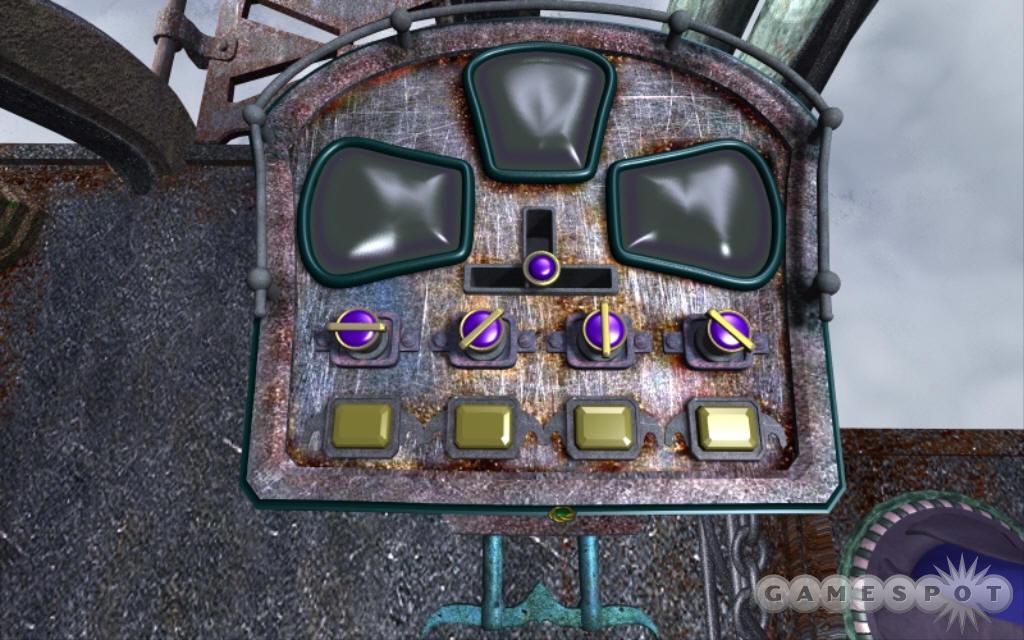If you want a good adventure game, don't play Aura: Fate of the Ages. It's not that this so-called adventure game is bad; in fact, in some ways it's pretty good. It's just that it lacks most of the vital hallmarks of the adventure genre. From the early Infocom text adventures to modern classics like The Longest Journey and Syberia, the genre at its best has focused on gripping stories, memorable characters, and richly imagined worlds. Above all, the best adventure games have provided a true sense of adventure, making you feel like your in-game avatar is really doing something unique and vital and exciting. Aura makes the big mistake of merely giving lip service to those elements, while instead focusing almost entirely on an arbitrary collection of elaborate, tough puzzles. When taken strictly as a puzzle game, though, Aura often succeeds admirably, challenging you with one fiendish brain-twister after another.

Aura is a Myst III clone that has you hopping between linked fantasy worlds that each has its own look and feel. Unlike Myst III, Aura's story and characters are forgettable, amateurish fluff that seems to have been cobbled together as an afterthought. It's a bit of muddled, woefully underdeveloped nonsense about a group of "Keepers" who guard a set of sacred rings and can cross through parallel realities. Combining the rings can grant enormous power, and one of the Keepers has rebelled to seek ultimate power for himself.
You play as Umang, a bright student of the Clan of Keepers. You only see the forgettable Umang during a few boring, tacked-on cutscenes. The game itself is played strictly from a first-person perspective, and you rarely meet other characters during gameplay. The ones you do meet are simple cardboard cutouts with no sense of personality or realistic motivation.
As such, playing Aura doesn't give any feeling that you're an adventurer thwarting a grave threat to existence. Rather, you're simply plopped down into alien landscapes and have to solve a bunch of arbitrary Rube Goldberg puzzles that are strewn about. Aura will likely send adventure game novices--and veteran fans who appreciate story, character, and ambience over puzzle work--running for the hills as soon as it starts. During the opening segment, the only thing resembling a story or character comes in the form of a little note you pick up--and an uninteresting one at that. Otherwise, you're just left on your own to figure out a bunch of complex, interrelated alien machines scattered in and around a house.
There's no motivation to solve these puzzles other than the simple fact that they're there. Good adventure games give you deeper, additional motivations to solve puzzles; they reveal exciting new areas to explore, help uncover part of a mystery, provide insight into characters, or simply offer a few good laughs. Aura's puzzles don't provide these things in any real substantial way. On the bright side, Aura's puzzles are admirably elaborate and challenging. If you want to give your synapses a workout, this is your game, with puzzles ranging from hard to downright brutal. You'll need to find and properly employ inventory items, carefully analyze alien symbols and patterns, complete baroque, jigsawlike puzzles, match snippets of music and compare relative pitches, and more. Unfortunately, Aura suffers from a few "pixel hunts" for easily overlooked objects or machine controls. Also, figuring out the clues in Umang's notebook can be a frustrating challenge in itself.

Aura's puzzles are thrown into a few different environments, like a set of catwalks and platforms suspended high in the mists of a mountain chain or a landscape of verdant valley paths flanked by primitive statues. The environments and puzzle machinery look nice enough on a technical level, but you never get a strong sense of exploring magical realms of the imagination. The game tries to ape Myst III's look and feel, but it captures none of that game's subtle artistry and sense of wonder. It feels as if Aura's environments were designed solely as receptacles to house the puzzles. The cutscenes and animations likewise leave little lasting impression, outside of the stiffness of the characters, particularly your bland alter ego, Umang. Generic music, generic sound effects, and woefully stilted voice-overs add nothing to the experience.
Aura: Fate of the Ages fails as an adventure game, offering no emotional resonance at all. It mostly succeeds well as a puzzle game, though. The developers clearly put a lot of thought into the game's brain-twisters, and you'll certainly have to put a lot of thought into figuring them out. While you never feel like Aura's puzzles are there for any good reason, you should feel a real sense of satisfaction when--and if--you solve them.